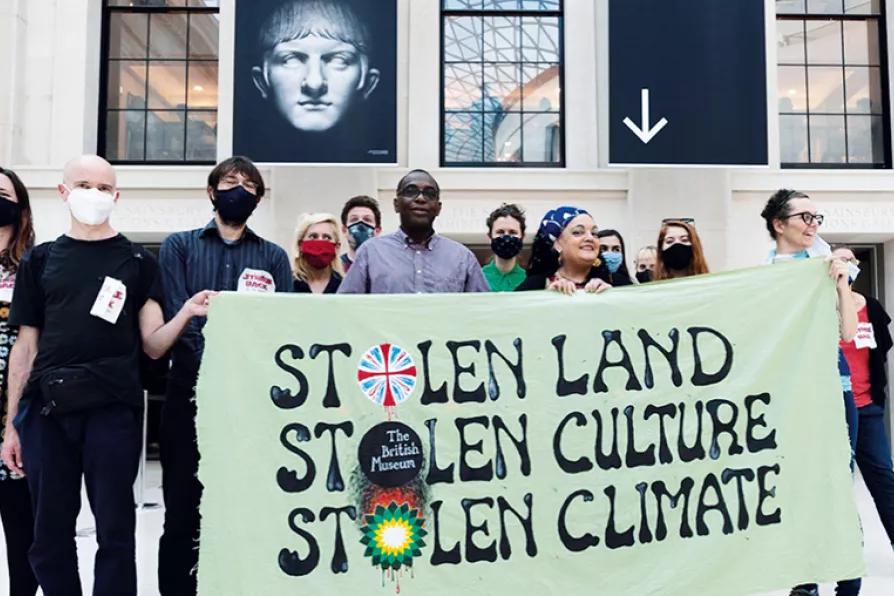As women dominate public services yet face pay gaps, unsafe workloads and rising misogyny, this International Women’s Day and TUC Women’s Conference must be a rallying point, says ANDREA EGAN

 Zita Holbourne with protesters against BP sponsorship of the British Museum
Zita Holbourne with protesters against BP sponsorship of the British Museum
THE Unesco International Day for the Remembrance of the Slave Trade and its Abolition is marked on August 23 each year. The date was chosen to link to the Haiti uprisings which subsequently led to abolition of the enslavement of African people.
The tumultuous history that Haiti has had to face had continued to the present day with the devastating impacts of the recent earthquake leaving hundreds dead yet again — and the Haitian people who have survived crying out in response to the absence of support.
I work within Unesco as a member of the Unesco Coalition of Artists for the General History of Africa. Unesco published 13 volumes of the history of Africa which were little known. They established the coalition as a way for multi-genre artists to use their platforms to promote the volumes as they felt that if young black people on the continent and across the diaspora understood their history, the great empires and achievements of the continent, this would go some way towards countering the racism and injustice they face today.
As part of the International Day and all year round, education is crucial — especially here in Britain. Because we have been written out of the history books, we have had to fight to defend the display, promotion and honouring of black historical figures, movements and histories.

On the anniversary of the implementation of the 1833 Slavery Abolition Act, ROGER McKENZIE warns that the legacy of black enslavement still looms in the Caribbean and beyond

ROGER McKENZIE expounds on the motivation that drove him to write a book that anticipates a dawn of a new, fully liberated Africa – the land of his ancestors

MOLLY DHLAMINI welcomes a Pan-Africanist and Marxist manifesto that charts a path for Africa’s resurgence










